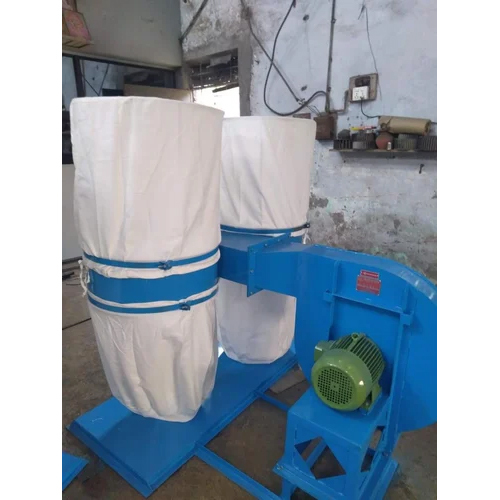
Dust Collector
10000.00 - 50000.00 INR/Unit
Product Details:
- Product Type Dust Collector
- Material Mild steel
- Click to view more
X
Dust Collector Price And Quantity
- 10000.00 - 50000.00 INR/Unit
- 1 Unit
Dust Collector Product Specifications
- Dust Collector
- Mild steel
Dust Collector Trade Information
- 1 Unit Per Day
- 1 Week
Product Description
Dust Collector is a standalone industrial system which is designed and developed by our skilled professionals by using best in class materials which imparts greater strength and sturdiness to withstand extreme pressures. Premium class engineering metals are used for the manufacturing of this impurity removal which results in longer service life. The inner as well as the external casing of the offered Dust Collector is coated with a smooth paint coating which acts as an anti-coating barrier to prevent surface damages.
Dust Collector FAQ:
Q. What is a dust collector?
Ans: A dust collector is a system used to improve air quality in industrial and commercial environments by removing particulate matter from the air. It helps in maintaining a clean and safe working environment by capturing dust and other airborne contaminants.
Q. How does a dust collector work?
Ans: Dust collectors work by drawing contaminated air through a series of filters or separators, where the dust particles are captured and collected. Clean air is then released back into the environment. The method of capture and filtration varies depending on the type of dust collector, which can include bag filters, cartridge filters, cyclone separators, electrostatic precipitators, etc.
Q. What are the benefits of using a dust collector?
Ans: Some benefits of using a dust collector include improved air quality, reduced risk of respiratory problems for workers, compliance with environmental regulations, prevention of equipment damage due to dust buildup, and maintaining a clean and safe work environment.
Q. What types of dust collectors are available?
Ans: There are several types of dust collectors available, including:
- Baghouse dust collectors
- Cartridge dust collectors
- Cyclone dust collectors
- Wet dust collectors
- Electrostatic precipitators
- Portable dust collectors
- Centralized dust collection systems
Q. How do I choose the right dust collector for my application?
Ans: When choosing a dust collector, consider factors such as the type and size of particulate matter you need to capture, the airflow and pressure requirements, the space available for installation, energy efficiency, maintenance requirements, and budget constraints. Consulting with a dust collection expert can help you select the most suitable system for your needs.
Q. How often should I clean or replace the filters in my dust collector?
Ans: The frequency of cleaning or replacing filters depends on several factors, including the type of dust being collected, the operating conditions, and the manufacturer's recommendations. Regular maintenance is essential to ensure optimal performance and prolong the life of your dust collector.
Q. Are dust collectors noisy?
Ans: The noise level of a dust collector can vary depending on factors such as the type of collector, its size, and the airflow rate. Some dust collectors may produce significant noise, while others are designed to operate quietly. Noise reduction measures such as sound insulation and silencers can be used to minimize noise levels in the workplace.
Q. Are dust collectors expensive to operate?
Ans: The operating costs of a dust collector depend on factors such as energy consumption, maintenance requirements, and the cost of replacement filters or other consumables. However, investing in a high-quality dust collector that is energy-efficient and requires minimal maintenance can help reduce long-term operating costs.
Q. Can a dust collector be used in residential settings?
Ans: While dust collectors are primarily used in industrial and commercial settings, smaller and more portable units are available for use in residential workshops or garages where woodworking or other activities generate dust. It's essential to choose a dust collector that is suitable for the size and type of particulate matter generated in your home workshop.
Q. Are dust collectors environmentally friendly?
Ans: Dust collectors can contribute to environmental sustainability by reducing air pollution and minimizing the release of harmful particulate matter into the atmosphere. Additionally, some dust collectors can be equipped with features such as filter monitoring systems and automatic filter cleaning mechanisms to optimize efficiency and minimize waste.
Tell us about your requirement

Price:
Quantity
Select Unit
- 50
- 100
- 200
- 250
- 500
- 1000+
Additional detail
Mobile number
Email
Other Products in 'Dust Collector' category
 |
RE BLOWERS INDIA PRIVATE LIMITED
All Rights Reserved.(Terms of Use) Developed and Managed by Infocom Network Private Limited. |
 English
English Spanish
Spanish French
French German
German Italian
Italian Chinese (Simplified)
Chinese (Simplified) Japanese
Japanese Korean
Korean Arabic
Arabic Portuguese
Portuguese


